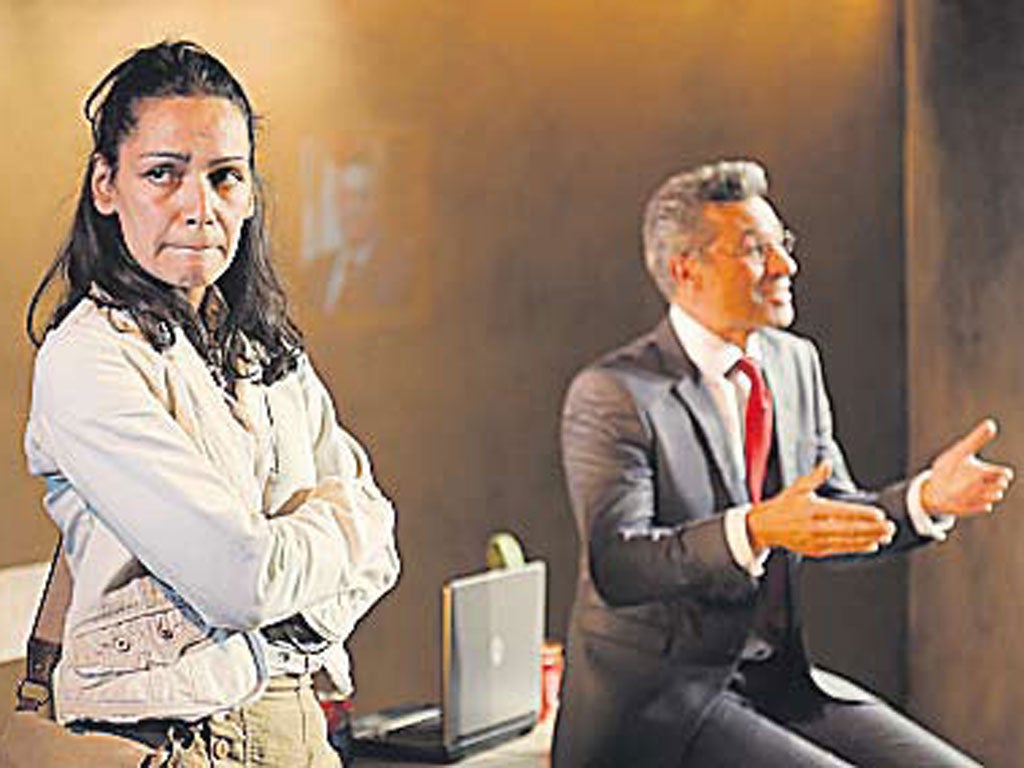Observations: How a soldier's story inspired a true-life drama

Your support helps us to tell the story
From reproductive rights to climate change to Big Tech, The Independent is on the ground when the story is developing. Whether it's investigating the financials of Elon Musk's pro-Trump PAC or producing our latest documentary, 'The A Word', which shines a light on the American women fighting for reproductive rights, we know how important it is to parse out the facts from the messaging.
At such a critical moment in US history, we need reporters on the ground. Your donation allows us to keep sending journalists to speak to both sides of the story.
The Independent is trusted by Americans across the entire political spectrum. And unlike many other quality news outlets, we choose not to lock Americans out of our reporting and analysis with paywalls. We believe quality journalism should be available to everyone, paid for by those who can afford it.
Your support makes all the difference.It is January 2012 and I'm sitting on the pavement of a Cairo side street in the afternoon sun. At the far end of the road is a monolithic concrete roadblock, beyond which is Tahrir Square.
The man sat next to me is holding forth about Hosni Mubarak – Egypt's recently deposed president. “He was a terrible president – under him the gap between the rich and the poor grew far too large,” he says. In itself, there should be nothing unusual about this. Ever since their revolution took place, Egyptians have jumped at the chance to criticise their hated and corrupt former leader.
What is surprising about these sentiments, however, is that the man expressing them is a soldier, and he currently has me under arrest. I had been in Cairo for just under a week with the British-Iraqi playwright Hassan Abdulrazzak. We were there to research The Prophet, a new play by Hassan about the Egyptian revolution that we are currently staging at the Gate Theatre, of which I am the artistic director. We had been heading to Tahrir to interview an activist but got sidetracked by the sight of this imposing military blockade. Thinking that pictures of this might be useful in the rehearsal room, I began photographing the soldiers standing guard.
But these military men do not appreciate having their picture taken. They order me to delete the images and ask to see some ID. Foolishly, neither Hassan nor I have our passports with us and so we immediately arouse suspicion. After some careful negotiation, and the threat of being detained until late into the night, we strike a deal to let Hassan return to the hotel to fetch our IDs, while I remain in custody. I've never been arrested before. But what threatened to be quite terrifying, turned out to be a surprisingly genial affair.
There seems to be a contradiction between the human being sat in front of me, and the institution that he represents. It is these kinds of paradoxes that I find so thrilling in a theatrical context. A person can embody many different and opposing things and it is the way these forces crash in to each other that can drive a good drama.
The Gate's stage is one of the smallest in London. So in order to try and put something as massive as the Egyptian revolution on it, we needed to crystallise things by creating a few individual characters. So this soldier, and the many other people we have met – be they revolutionaries, Islamists or taxi drivers – all provided inspiration to us as we tried to create a show that depicts a society on the brink of potentially massive change.
'The Prophet', Gate Theatre, London W11 (gatetheatre.co.uk) until 21 July
Join our commenting forum
Join thought-provoking conversations, follow other Independent readers and see their replies
Comments